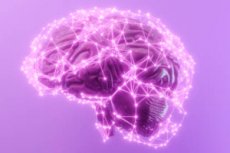What does the brain hear during sleep?
Last reviewed: 07.06.2024

All iLive content is medically reviewed or fact checked to ensure as much factual accuracy as possible.
We have strict sourcing guidelines and only link to reputable media sites, academic research institutions and, whenever possible, medically peer reviewed studies. Note that the numbers in parentheses ([1], [2], etc.) are clickable links to these studies.
If you feel that any of our content is inaccurate, out-of-date, or otherwise questionable, please select it and press Ctrl + Enter.

When a person sleeps, does he continue to hear something? Indeed, he hears, and at the same time the heard information has an impact on the brain and the whole organism, which was proved by the staff of the Belgian University in Liège.
Researchers included a group of sleeping people in an audio recording of different words - both of a neutral nature and soothing, relaxing words. Calming words and phrases increased slow-pulse brain activity during the slow phase of sleep. In doing so, this phase lengthened, and participants indicated that they slept better. Calm words helped the brain to rest and relax. Neutral words had no effect on the quality of rest.
This kind of research has been done before. But today's work by scientists has made it clear whether calm words only affect brain, or something else?
Project participants had their heart function monitored using cardiograms. They noticed that when soothing words were spoken, the heart rate slowed down.
It is important to know that the subjects were given audio recordings of words, not music or singing. That is, the brain heard not only sound: it needed to understand what it was hearing, to transform what it heard into action. In this situation, hearing soothing words, the brain went into relaxation, the heart was calmed. It turns out that words influence a person both during waking and sleeping hours.
In the course of analyzing the information voiced by scientists, the question arises: is it possible to study during sleep, if you listen to the necessary audio lesson? After all, the brain continues to listen and perceive information? Scientists hasten to disappoint: the brain does perceive individual words, but it will not be able to memorize a large amount of information.
Sleep and brain function are still two mysterious phenomena for science. Scientists do not have a full understanding of what happens in the brain structures of sleeping people, although research is conducted regularly. What do scientists already know?
- Some odors can activate memories in sleep, improving cognitive adaptation.
- In a dream, the information received during the day is put in order, some stressful information is sifted out.
- Sleep helps to "reboot" the brain and get to work with renewed vigor.
Sleep is an important part of consciousness, so it should not be ignored. It helps to increase energy resources, helps to manage emotions, and facilitates the quality of mental activity.
The discovered cardiac response to relaxation during sleep can be used to treat many cardiac diseases.
The results of the experiments are described in a Journal of Sleep Research article
